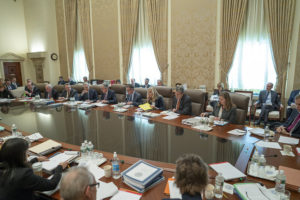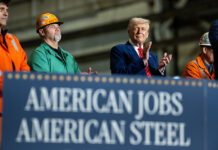
Kansas City Fed President Esther George has finally stated the truth that its seems other members of the FOMC have been avoiding all along. Low rates can fuel asset prices, and low or no inflation may not be so bad. Bloomberg’s Steve Matthews reports:
Federal Reserve Bank of Kansas City President Esther George said she’s opposed to cutting interest rates in order to raise inflation to the central bank’s 2% target, warning that could lead to asset-price bubbles and ultimately an economic downturn.
“Lower interest rates might fuel asset price bubbles, create financial imbalances, and ultimately a recession,’’ George, who votes on monetary policy this year, said Tuesday to the Economic Club of Minnesota. “In current circumstances, with an unemployment rate well below its projected longer-run level, I see little reason to be concerned about inflation running a bit below its longer-run objective.”
President Donald Trump and others in his administration have called for lower interest rates to create faster U.S. growth, while citing the lack of inflation to support their case for policy action. Some Fed officials, meanwhile, have separately made the case for the central bank to take steps to push price pressures back to goal, and financial markets expect a rate cut this year. Charles Evans, president of the Chicago Fed, said the central bank might want to consider cutting rates if inflation falls to around 1.5%.
George, among the most hawkish of the Fed’s 12 regional chiefs, rebutted such concerns.
“I am not convinced that a slight undershoot of inflation below objective requires an offsetting overshoot of the objective,’’ George said in the text of the Minneapolis speech. “The current level of inflation may perplex central bankers and financial market participants, but in the context of a growing economy and job gains, it doesn’t demand a Fed policy response.’
Read more here.



